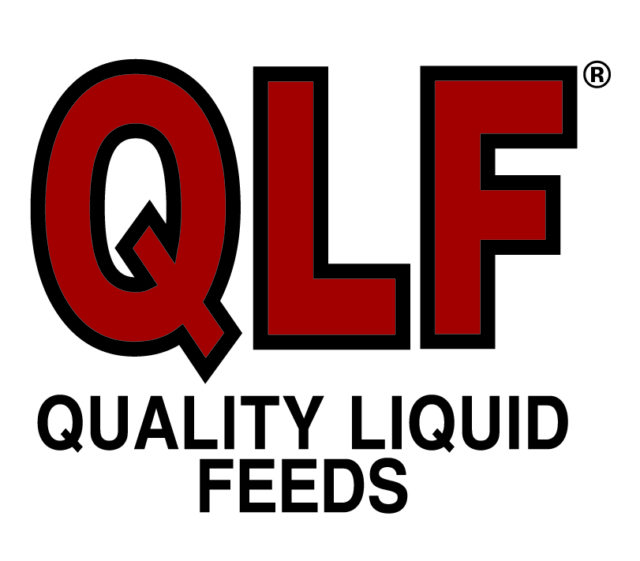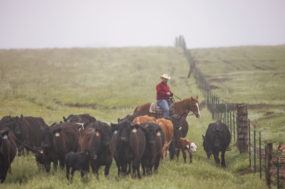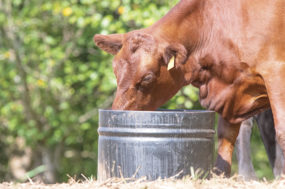The 256-page lawsuit, filed Thursday in Union County (S.D.) Circuit Court, alleges that the news network “knowingly made false, defamatory and disparaging statements regarding BPI and LFTB during a disinformation campaign this spring.”
Those named in the lawsuit include ABC News anchor Diane Sawyer, reporter Jim Avila and correspondent David Kerley. Other defendants include Gerald Zirnstein, the former USDA scientist credited with coining the term “pink slime” in a 2002 USDA memo; Kit Foshee, a former BPI quality manager and a source for ABC’s reports; and food safety consultant Carl Custer.
The news coverage of LFTB repeatedly mentioned the “pink slime” label on repeated nights of the ABC World News, the lawsuit states. That led to a widespread backlash against the beef product from consumers and grocery chains.
As a result of the coverage, BPI said its sales dropped from 5 million pounds per week to less than 2 million pounds. The sales decline forced BPI to close three of its facilities and cut more than 700 jobs.
BPI officials said the coverage ignored facts and sources verifying that the product is “100 percent beef product.” Instead defendants labeled it as “filler” or “scraps” that were not safe for human consumption.
“The month-long campaign,” the lawsuit states, “manufactured a baseless consumer backlash against BPI and LFTB. Through a series of factual misstatements, repeated continuously through the campaign, defendants knowingly misled the public to believe that LFTB was not beef at all, but was rather an unhealthy ‘pink slime’ ‘hidden’ in ground beef as part of an ‘economic fraud’ masterminded by BPI.”
In a statement, ABC News Senior Vice President Jeffrey W. Schneider said, “The lawsuit is without merit. We will contest it vigorously.”
LFTB is produced from lean beef trim. Since the cuts are too small to be detached with a knife, they are heated in a spinning cycle to separate from fat. Ammonium hydroxide gas is added to the meat to kill bacteria. It’s then mixed with 50-50 lean-to-fat ground beef for leaner mixes.
Between March 7 and April 3, 2012, the lawsuit states, ABC aired 11 broadcasts and supplemented them with 14 online reports and “numerous” social media postings in which the defendants “knowingly or recklessly made nearly 200 false, defamatory, and disparaging statements” against BPI and its product.
In a press conference, Dan Webb, chief counsel for BPI and chairman of Winston & Strawn LLP, said the amount of reporting by ABC News led to an unparalleled amount of coverage.
“I’m not aware of any defamation case ever that is similar to this one in its duration, in the scope and number of false statements, in the number of people it reached through this concerted and sustained attack, and in the amount of lost profits and damages.”
BPI will seek damages for defamation, product and food disparagement, and tortious interference with business relationships. In addition to $1.2 billion in compensatory and statutory damages, BPI will also seek punitive damages Webb said.
The 80 percent drop in sales for LFTB last spring caused the company to lose about $400 million in profits. Webb said the network used the words “pink slime” to describe the product 137 times. According to reporting by The New York Times, the term was originally coined by Zirnstein when he worked at the USDA. Webb said he has not seen proof of where the term originated, but ABC’s repeated use of it did “enormous financial harm.”
“There is not a more offensive way of describing a food product than to call it ‘slime,’” the lawsuit reads, “which is a noxious, repulsive, and filthy fluid not safe for human consumption. Defendants used this false description to rename LFTB in an effort to incite and inflame consumers against BPI and LFTB.”
The lawsuit claims further that defendants accused BPI of having “engaged in improper conduct to gain approval for LFTB from the USDA.”
Craig Letch, director of food safety and quality assurance for BPI, said the suit’s purpose is to defend the company’s 30 years of work, which was undone in 28 days of media scrutiny.
“We prided ourselves on being an honest and open company,” Letch said. “We’re proud of what we do. We’ve opened our door to academic institutions, consumer advocacy groups, like National Consumers League, and Consumer Federation of America, respected food scientists and microbiologists, all of which stood behind us in this situation, but none of their voices were heard. They did not meet the agenda of ABC’s news reporting.”
The lawsuit also offers new details about ABC’s initial coverage of LFTB, and the chronology of BPI’s response to their broadcasts.
BPI claims that it confronted ABC about false statements made about LFTB as early as April 2011, after an episode of celebrity chef Jamie Oliver’s program “Food Revolution.”
In that program, “Oliver made multiple false statements regarding the process used by BPI to produce LFTB…” the lawsuit states. One step Oliver took was dunking ground beef in a bucket of household cleaning ammonia to “wash” beef trimmings – a depiction that American Meat Institute and BPI said grossly distorted the use of ammonium hydroxide gas for food products.
The lawsuit says that AMI responded to ABC that the episode’s comments were “false and malicious,” and “then provided ABC accurate information regarding LFTB” and its production process. Instead of issuing any correction, the lawsuit states, the network chose to rebroadcast the same episode a month later.
Webb said the lawsuit will also establish how defendants sought to interfere with BPI’s business relationships, by reporting on the consumer backlash that forced grocery retailers to drop LFTB.
“What makes this different than a lot of defamation lawsuits is that it was not enough for ABC to defame and disparage our product with a vast number of false statements,” Webb said. “ABC took it to a completely different level. During their broadcasts, they made a choice to target our customers and to interfere with the business relationship we have with our customers. That’s a completely separate claim from defamation.”
Charles N. Davis, professor at the Missouri School of Journalism, said proving that the network showed a reckless disregard for the truth, as required by libel law, will be the key challenge for BPI’s lawyers.
“The courts say there has to be evidence not only of falsity, but such patent falsity that when every yellow light comes up, the (media) run it, that they blew through those warning signs and proceeded anyway. That’s where I think this case will be troublesome. ![]()
“It’s a huge burden. I won’t say they won’t meet it, but it’s always an uphill fight.” ![]()







